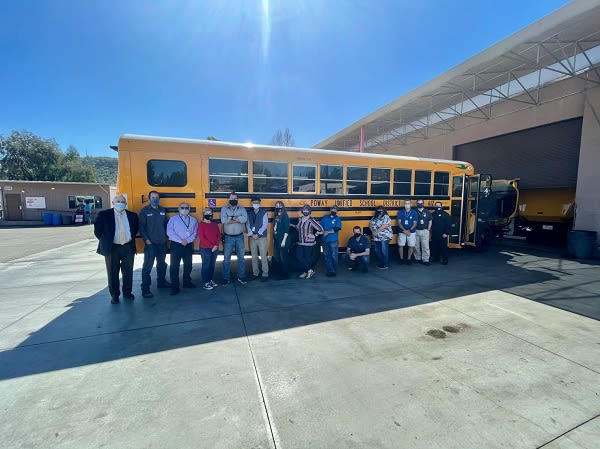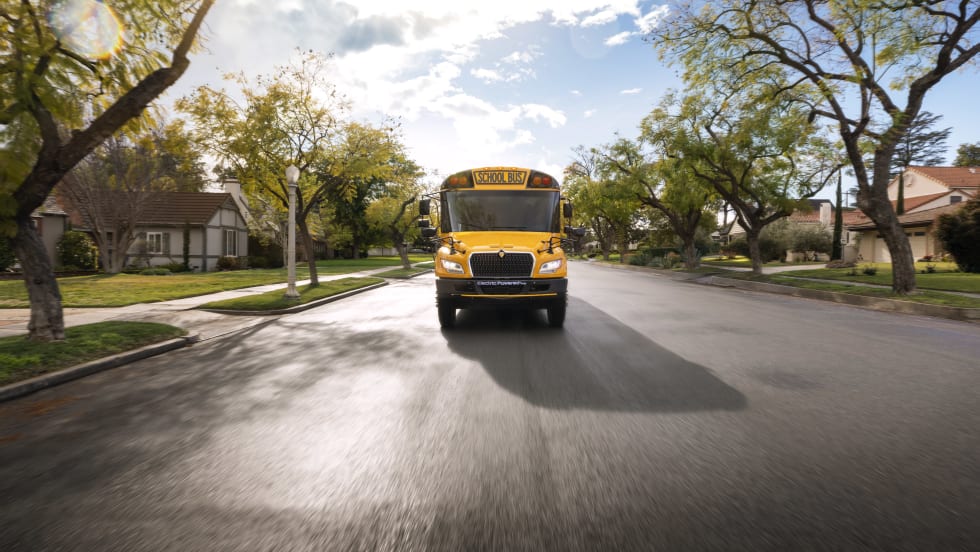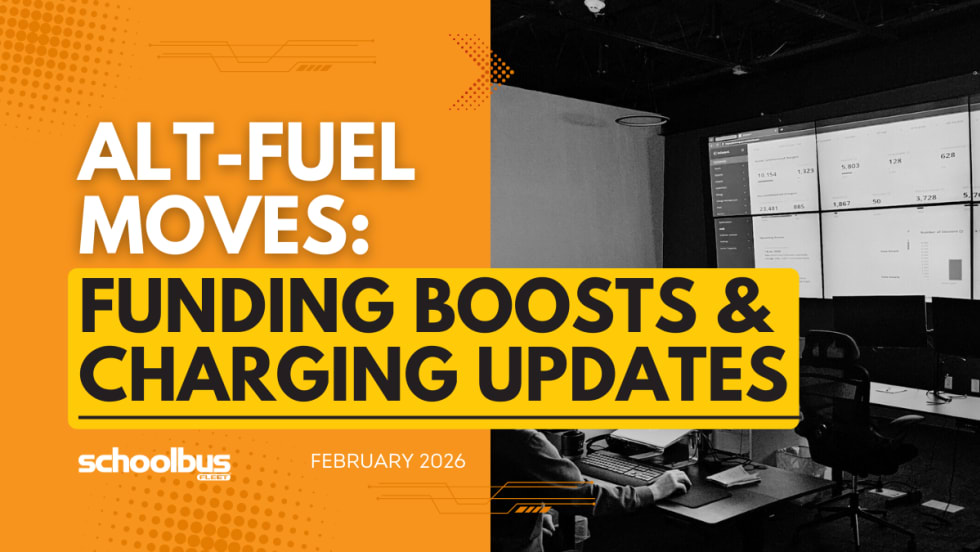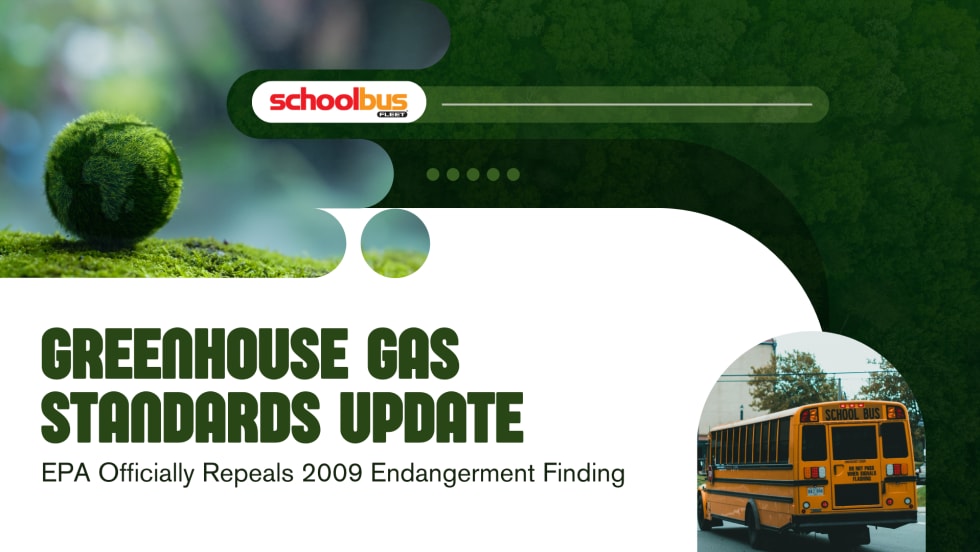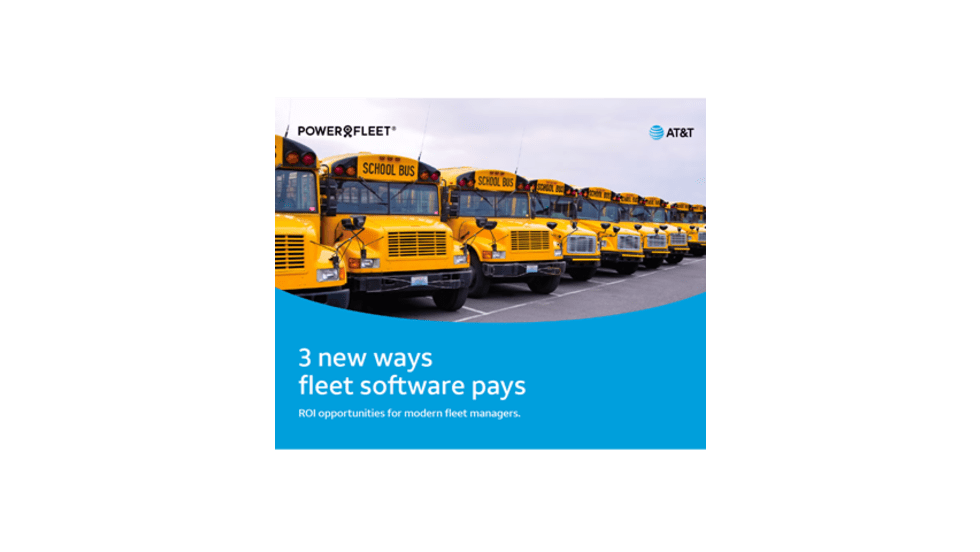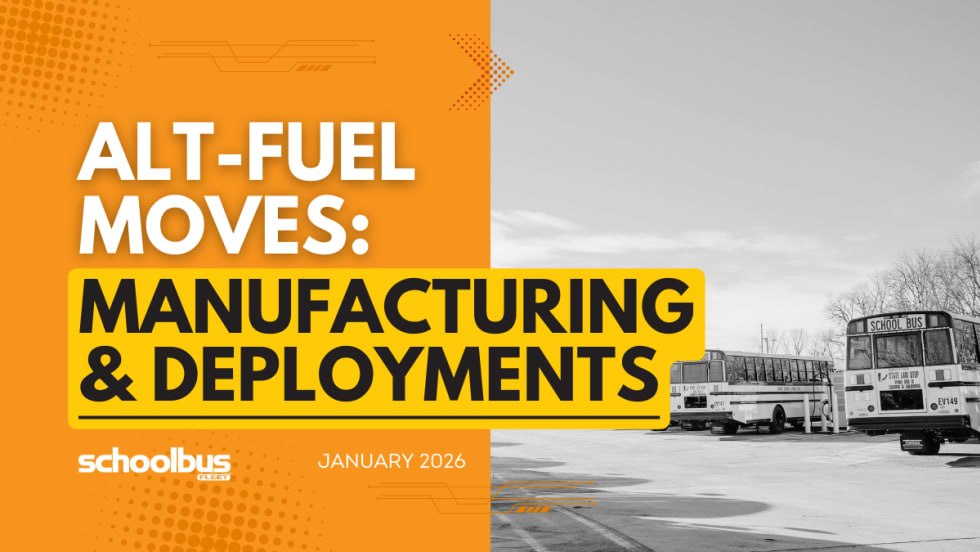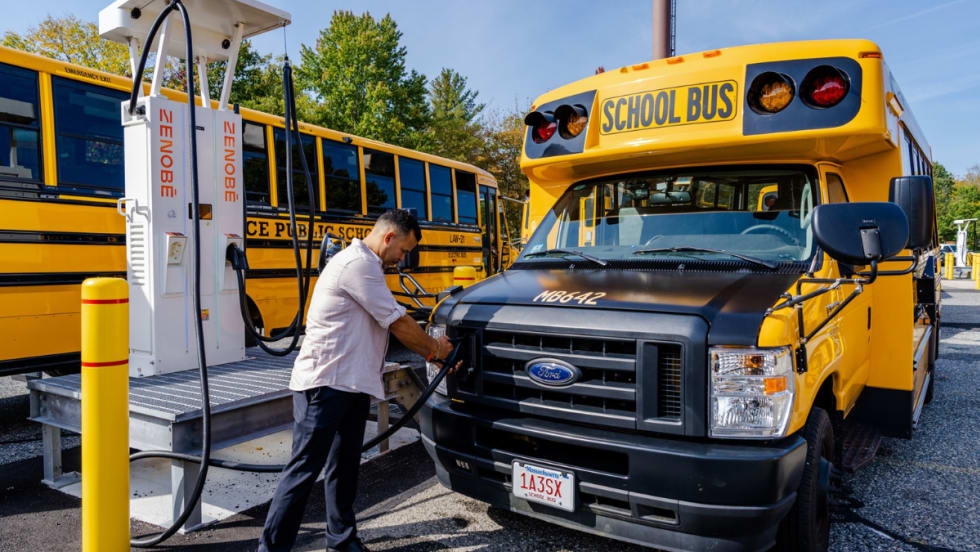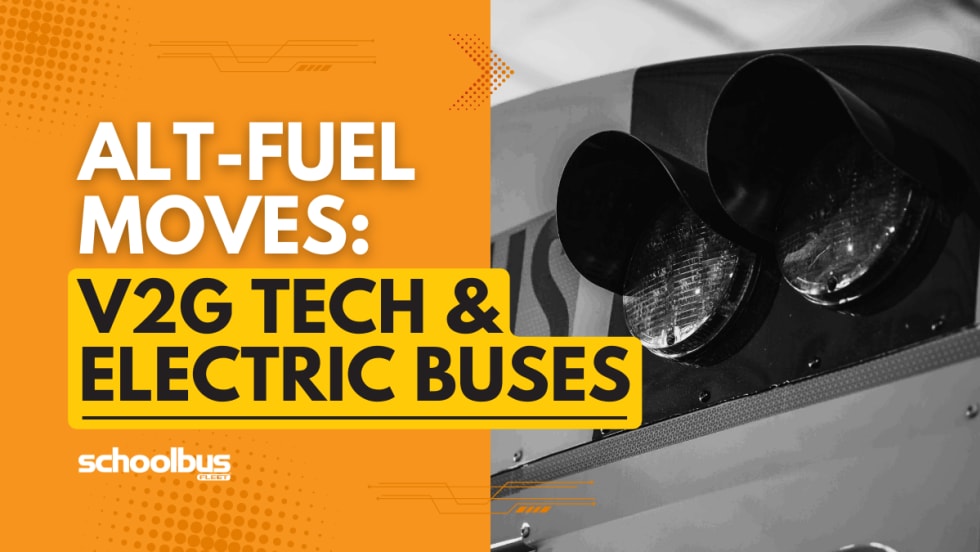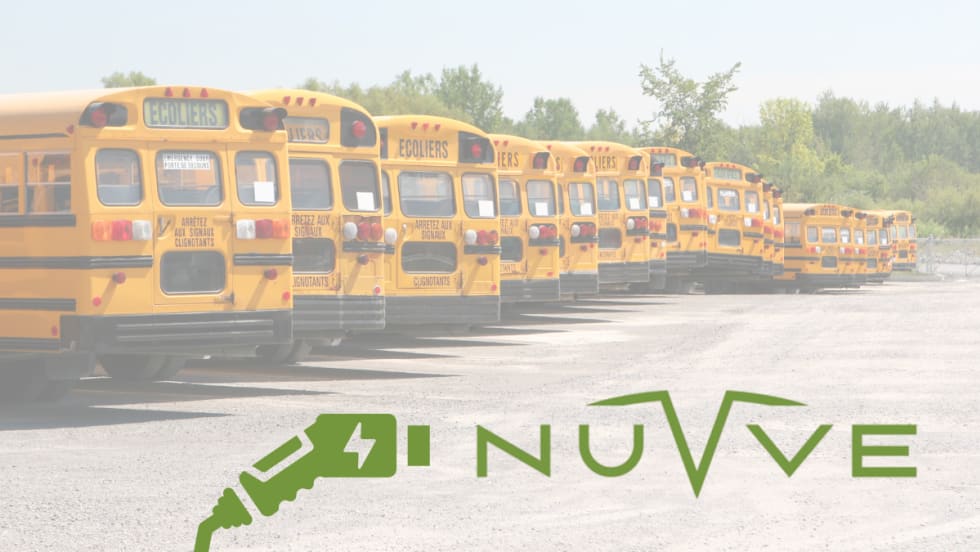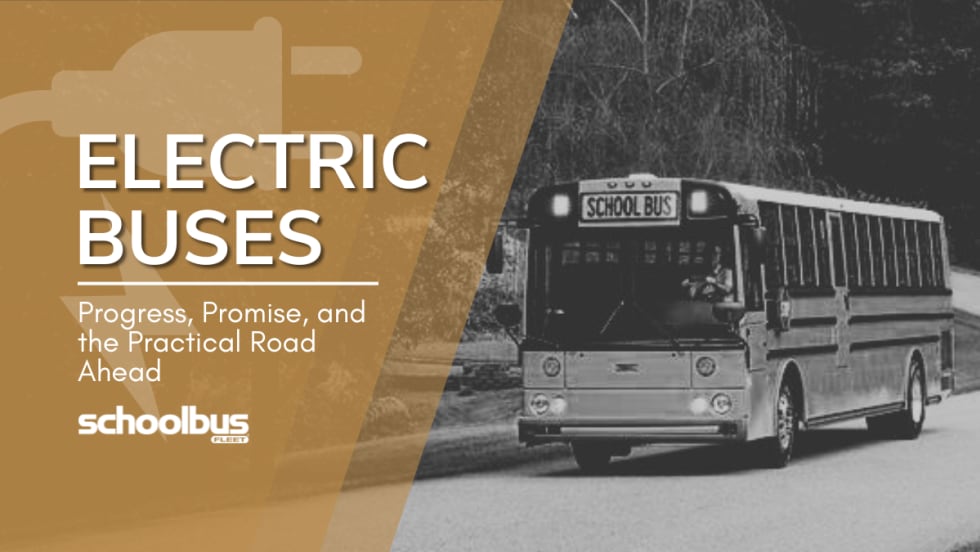As electric school bus adoption continues to pick up across the country, not only are school districts and bus companies tasked with learning more about the alternative fuel, but school bus dealers are working overtime to keep up with the latest trends and offerings.
With more state and situation specific electric bus acquisitions, dealers are providing varying levels of service based on school districts and school bus companies’ needs. Assisting with the funding process, setting up efficient delivery timelines, and providing the necessary driver training are just some of the ways dealers in California and Indiana are adapting to the ever-changing electric vehicle (EV) landscape.
1. Being a Partner First.
It’s one thing to make a sale as a school bus dealer, but working with a school district or bus company as a dedicated partner in providing clean transportation solutions is key to a successful EV rollout, says John Landherr, CEO of A-Z Bus Sales Inc., a California-based Blue Bird dealer.
“We're interested in being a partner for our customers that they can rely on to not only help them access funding, infrastructure, and a new electric bus, but also invest in new technology for the benefit of the kids on board and protect our communities by reducing the toxic carbon footprint,” he says.
Once those common goals are established, he adds, then it becomes easier for both parties to move forward with finding grant and charging infrastructure opportunities.
2. Prioritizing Funding Assistance.
Having an in-house grant coordinator who works solely with customers on how to secure local, state, and Volkswagen (VW) settlement funding opportunities can ease the workload for school districts and bus companies.
Additionally, working closely with government aid agencies and getting districts in touch with grant writers can help ensure they meet specific requirements before submitting grant applications.
Clifford Zehr, president of Kerlin Bus Sales and Leasing Inc. — a Thomas Built Buses dealer in Silver Lake, Indiana — says his company works with the state’s Clean Cities agencies, which have grant writers available, to assist schools with any information they might need to qualify for a grant.
3. Establishing a Delivery Timeline.
Oftentimes if a district has secured grant funding for an electric bus, those grants will have specific guidelines for when a bus should be delivered. So, Landherr says, it’s important to stay on top of deadlines to manage customer expectations.
“We're a big believer in under promise and over deliver,” he adds. “Nobody likes surprises, especially when they're making an investment.”
4. Connecting With Utility Providers.
Over the last few years, Kerlin Bus Sales has partnered with power company Duke Energy in supplying three Indiana districts with charging infrastructure. Throughout the process, Zehr says, Kerlin Bus Sales has encouraged its school district customers to start off small and work their way up to acquiring more infrastructure.
“We've encouraged them to buy a charger that would go under their existing facility, like a wall-mounted one to get them off the ground without relying on a big expansion expenditure unless they're buying a [larger] number of buses,” he says. “It’s kind of starting them off with training wheels, starting off small, and as they grow we'll add more infrastructure.”
5. Providing Proper Training.
With more adoption comes more training, Zehr explains. To keep up with training its customers and their drivers, Kerlin Bus Sales works closely with Thomas Built Buses and has two trainers on hand when delivering electric buses to customers.
“We train the school staff and the drivers, and then there's more in-depth training as far as maintenance,” he says. "We provide that for every customer that purchases an [electric] bus."
As EV technology continues to grow and emerge, Landherr says dealers will need to make sure their training and other resources are up-to-date to ensure successful electric bus operation in the long term.




